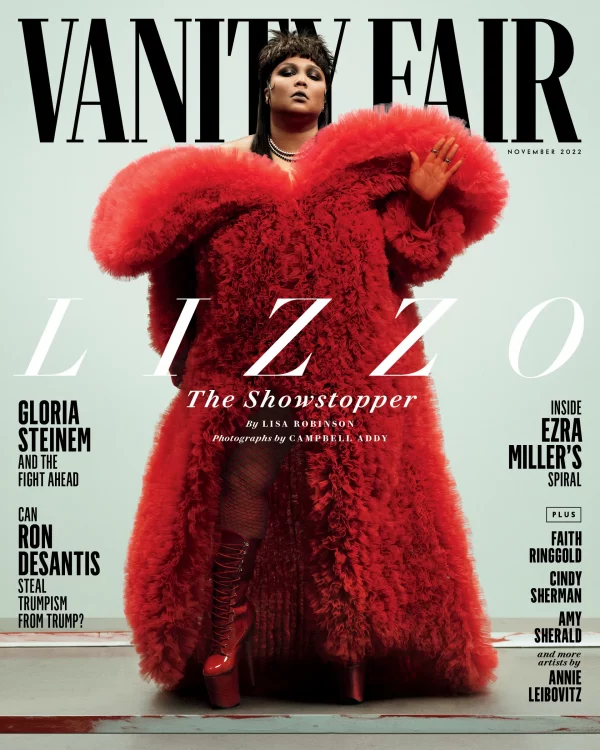Lizzo Shuts Down ‘Biggest Criticism’: That She Makes Music For White Audiences
Share
Explore Our Galleries
Breaking News!
Today's news and culture by Black and other reporters in the Black and mainstream media.
Ways to Support ABHM?
By Kimberley Richards
“I am not making music for white people. I am a Black woman, I am making music from my Black experience,” the singer told Vanity Fair.

Lizzo has faced fatphobic bullying and internet attacks as a celebrity, but she told Vanity Fair in a profile published Tuesday that she is most bothered by assumptions that she makes music for white audiences.
The “About Damn Time” singer, who is on the publication’s November cover, said the notion that some Black musicians make music for white people is “such a critical conversation.” She said it’s “probably the biggest criticism” that she has received as an artist.
“When Black people see a lot of white people in the audience, they think, well this isn’t for me, this is for them,” she said. “The thing is, when a Black artist reaches a certain level of popularity, it’s going to be a predominantly white crowd.”
Lizzo said Black artists like Sister Rosetta Tharpe, Tina Turner, Diana Ross and Beyoncé are examples of musicians she believes also happen to draw crowds that are “overwhelmingly white.”
The singer then emphasized that she does not make music for white audiences, regardless of what members of her audience look like.
“I am not making music for white people. I am a Black woman, I am making music from my Black experience, for me to heal myself [from] the experience we call life,” she said. “If I can help other people, hell yeah. Because we are the most marginalized and neglected people in this country. We need self-love and self-love anthems more than anybody.”
Lizzo has also shown she is not afraid to take accountability.











Comments Are Welcome
Note: We moderate submissions in order to create a space for meaningful dialogue, a space where museum visitors – adults and youth –– can exchange informed, thoughtful, and relevant comments that add value to our exhibits.
Racial slurs, personal attacks, obscenity, profanity, and SHOUTING do not meet the above standard. Such comments are posted in the exhibit Hateful Speech. Commercial promotions, impersonations, and incoherent comments likewise fail to meet our goals, so will not be posted. Submissions longer than 120 words will be shortened.
See our full Comments Policy here.